Africa/Liberia/frontpageafricaonline.com
El Ministro de Educación, Profesor D. Ansu Sonii, calificó al Programa de Asociación Privada (PPP) en Liberia en el Foro de Habilidades y Educación Global celebrado en Dubai, diciendo «Creo que [LEAP] funciona». El gobierno de Liberia envió al Ministro de Educación para hablar con los inversionistas y las partes interesadas sobre el éxito de LEAP y para obtener más apoyo y donaciones para el programa, de modo que pueda expandirse en todo el país con un impacto en más niños que los 53,000 que actualmente reciben servicios.
El Ministro Sonii elogió los logros de aprendizaje, la supervisión, los suministros educativos, la mejora del currículo y la calidad de los docentes entre las razones clave para continuar el programa que ha estado en Liberia durante tres años, aunque se apresuró a mencionar las limitaciones financieras del gobierno que admite que tienen No pudiendo cumplir sus compromisos con el PPP.
El Ministro, al mismo tiempo, utilizó la reunión educativa de Dubai para solicitar más apoyo al programa, ya que se reportan serios obstáculos financieros hasta el momento en la ejecución del ejercicio: “Continuaremos solicitando apoyo para las asociaciones privadas en la educación. Como es, ya tienes escuelas privadas. Esa es una asociación privada, pero se basan en tarifas, el énfasis está en las entregas de escuelas públicas que son financiadas en su totalidad por los gobiernos. Los recursos han sido limitados anteriormente, ahora están limitados y estarán limitados por mucho tiempo. Eso no respeta el crecimiento de la población. A la población no le importa si usted está ganando o no un ingreso, por lo que debemos estar preparados para responder a ese crecimiento de la población, lo que significa que las escuelas continuarán siendo construidas, que se establecerán, las habilidades se entregarán continuamente, sin embargo, los recursos para hacerlo simplemente no están ahí. En virtud de la Convención sobre la educación básica gratuita y obligatoria, Liberia firmó con ella, con buenas intenciones, pero la intención y la capacidad no coinciden. Ahora no podemos volver a tomar esa decisión, por lo que necesitamos fondos y socios que nos ayuden a lograr esto «.
Actualmente hay siete proveedores que inician el programa de PPP en Liberia, con al menos sesenta y ocho de dichas escuelas dirigidas por Bridge, una empresa social que opera en varios países africanos y está clasificada como efectiva para los resultados de aprendizaje de los estudiantes y el apoyo y el empoderamiento de los maestros.
Al mismo tiempo, el ministro elogió los esfuerzos de alimentación escolar iniciados por el Programa Mundial de Alimentos, Mary’s Meals y otros y dijo que sirven como una manera de ayudar a reducir a los niños que no asisten a la escuela. Dijo que “ningún gobierno puede alimentar a 2 millones de niños, 2 veces al día. Tal vez algunos gobiernos pero no los míos. Básicamente, el Programa Mundial de Alimentos, varias comidas y otras personas están ayudando a alimentar a los niños mucho más pequeños para que permanezcan en la escuela. Algunos de ellos van a la escuela solo por la comida porque si quieren quedarse en casa no hay comida, la momia ha ido al mercado o a algún lugar para que vayan a la escuela. Eso es estímulo y nos ha ayudado a reducir a los niños que no asisten a la escuela, a excepción de los padres y los propios niños que deciden no ir a la escuela.
El Ministro de Liberia elogió y agradeció a los socios en virtud del Programa de Promoción de la Educación de Liberia (LEAP, por sus siglas en inglés) que se desempeñan excepcionalmente bien y están asumiendo algunas de las responsabilidades del gobierno, que no cuentan con los recursos de las finanzas para entregar como maestros pagadores, haciendo renovaciones y cuidando a otros administradores, etc. “En lo que respecta a la cantidad de escuelas, el acceso no es una gran dificultad ahora, el problema que tenemos es la calidad. Es esa cualidad la que nos ha desafiado. Soy un ministro de un año y, afortunadamente, he estado en la universidad por más de treinta años, y por eso los estudiantes que vienen de las escuelas secundarias y de la universidad los conozco, y sé de dónde vienen, así como la línea de meta para esos tipos que vienen de la planta de procesamiento, y no han estado bien. Ahora que me asignaron la tarea, ¿cómo puedo transformar esto? No podemos hacerlo solos. Sin embargo, ningún gobierno querrá cambiar todas sus responsabilidades a un socio privado. Ningún gobierno, ningún gobierno responsable. Es la cuestión de compartir la responsabilidad. De hecho, con la participación del PPP, el PSL, llamamos a nuestro grupo el programa de avance de Liberia LEAP, pero es lo mismo, por lo que ahora los proveedores de ese programa reciben apoyo. Se supone que debemos compartir ese apoyo. Todos los maestros en esa nómina deben ser pagados por nosotros. Todos los administradores de la escuela deben ser pagados por el gobierno. Bueno, adivina qué: no hemos podido cumplir nuestro lado del trato. Así que aquellos que mantienen esos programas tienen que llenar ese vacío, tal vez con la expectativa de que en algún momento del camino serán reembolsados, Espero que sí, pero si nunca te reembolsan, entonces lo siento, pero todavía tenemos que seguir adelante porque los niños están llegando a lo largo de la línea. En este momento somos una población pequeña. La cantidad de estudiantes que están en la escuela en este momento se aproxima a 1.8 millones y hemos fomentado la retención y el hecho de que los niños permanezcan en la escuela por más tiempo es lo que realmente queríamos. ¿Pero quién está ahí para impartir la educación? Todavía creo que lo que ha sucedido en los últimos tres años, son cambios significativos que hemos visto en las 200 escuelas que son administradas por proveedores privados apoyados por los filántropos y les agradecemos por ello, uno para que continúen.
El Ministro Sonii ha anunciado al mismo tiempo el inicio de la capacitación en habilidades, pero a la vez, Sametime cree que la educación primaria a nivel de principiante sigue siendo una etapa efectiva de inicio primordial en el futuro. Estamos tratando de comenzar con un programa de habilidades efectivo ahora. La UE está ayudando con eso, pero de nuevo eso no es suficiente. Tenemos que invertir en ello nosotros mismos. Si Dios quiere, creemos que mantener la relación específicamente por ahora con la enseñanza en el nivel primario nos aliviará del problema de los fracasos que vemos en el nivel superior superior. Para los pocos que ya hemos probado, permítanme asegurarles que pueden hacerlo en un momento posterior cuando visiten Liberia. Los niños que están en esas escuelas específicas, 53,000 de ellos, han podido hacerlo mucho mejor porque la enseñanza se suministran materiales, los metodólogos están mejorados, los maestros se reúnen en clases bajo supervisión y es ese tipo de supervisión que se debe traducir a las otras escuelas públicas. Ahí es cuando podremos ver que estamos comparando manzanas con naranjas. Por el momento, casi no podemos comparar los dos porque estas personas lo están haciendo mucho mejor, rezamos para que aquellos que los financian lo estén haciendo mucho mejor y obtengamos más, les damos más escuelas porque nos acercamos a casi 3,000 escuelas y solo tienen 200, así que si podemos darles 500 de ellas, seremos felices «. Global Education and Skills Forum es una iniciativa de la Fundación Varkey. La Fundación Varkey cree que cada niño merece un maestro inspirador y otorga el Premio Global de Maestros. Este año, el Premio fue otorgado por primera vez a un africano, el keniano Peter Tabichi. Al reunir a líderes de los sectores público, privado y social en el Foro Global de Educación y Habilidades, la Fundación Varkey pretende demostrar que la asociación en educación es la clave para resolver problemas globales.
Fuente: https://frontpageafricaonline.com/education/we-will-continue-to-appeal-for-support-for-private-partnerships-in-education-says-education-minister-prof-sonii-at-gsef-event-in-dubai/
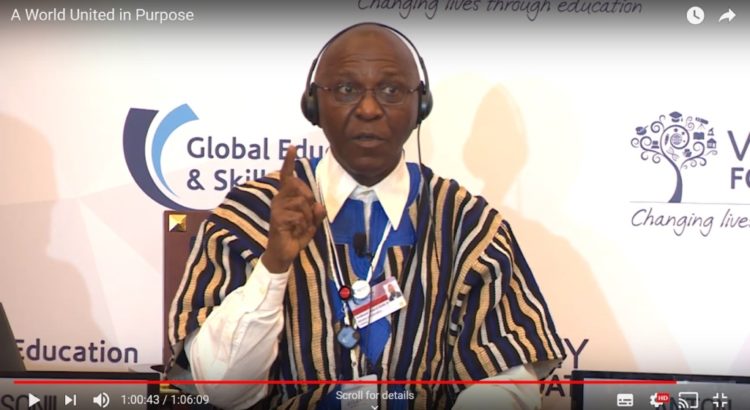




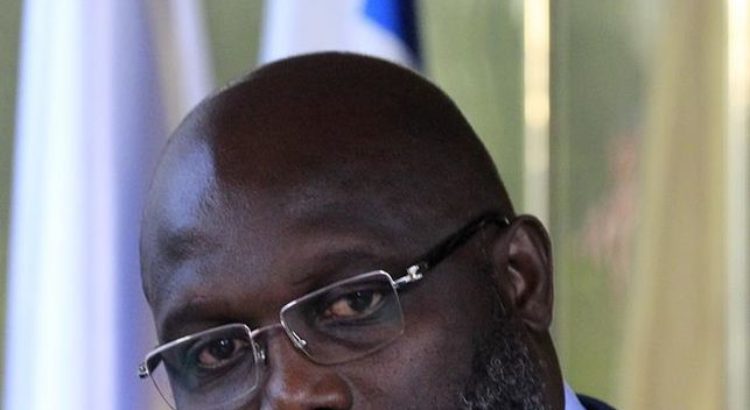
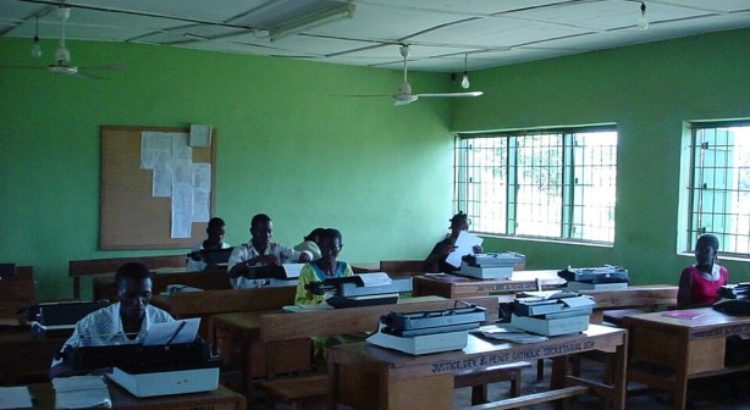

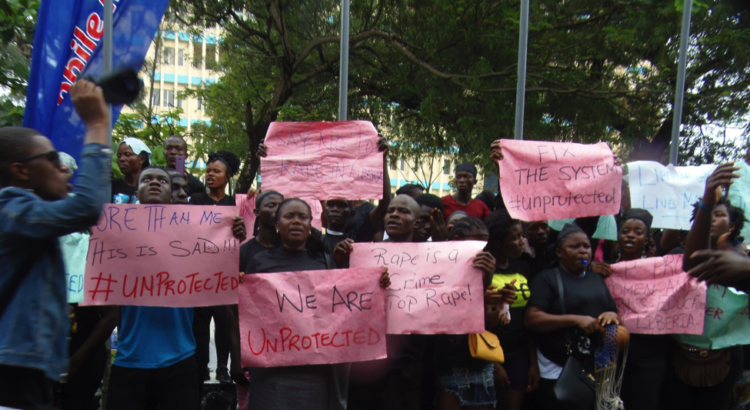

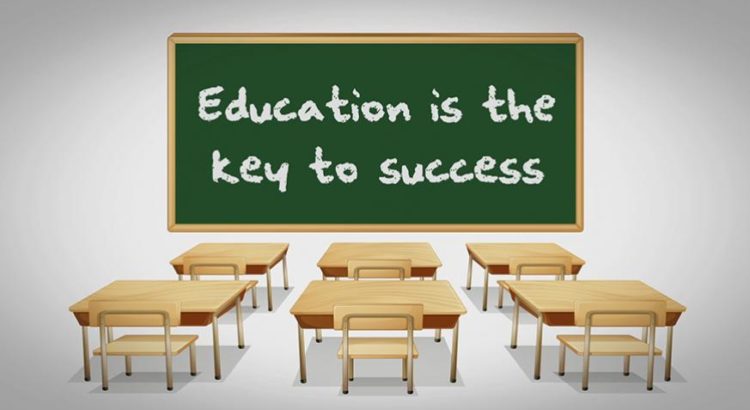





 Users Today : 16
Users Today : 16 Total Users : 35459922
Total Users : 35459922 Views Today : 20
Views Today : 20 Total views : 3418485
Total views : 3418485